BIG STORY
Adeduntan: Banks, Customers Must Approach 2023 With Partnership Mindset
Published
2 years agoon
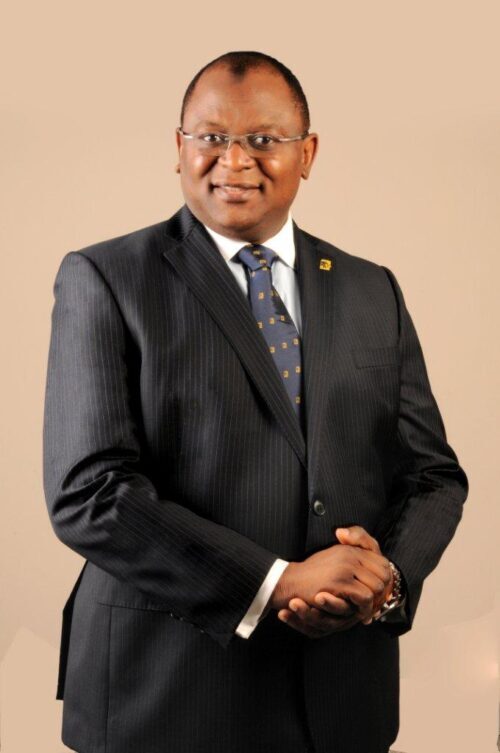
The Managing Director/Chief Executive Officer of First Bank Nigeria Limited, Dr. Adesola Adeduntan, in this interview with THISDAY reviewed the performance of the global economy in 2022 and advised businesses and their bankers to approach 2023 with a partnership mindset to ensure that a win-win outcome is achieved despite the anticipated macroeconomic challenges. Excerpts:
What are your forecasts and anticipations for the global economy in 2023?
I would like to start by noting that 2022 was indeed a turbulent year for the global economy. In 2022, the global economy witnessed record high inflation rates with the attendant high cost of living across several economies. The elevated inflationary rates were attributed to the aftereffects of the Covid-19 pandemic as well as the Russian-Ukraine crisis. In its last World Economic Outlook report, the IMF projected a 2.7 per cent global growth rate in 2023, lower than the 3.2 per cent in 2022. The 2023 projection will be the weakest global growth profile since 2001 except for the global financial crisis year and the acute phase of the Covid-19 pandemic in 2020. In my view, in 2023, we will likely witness slower growth across several global economies due to lingering trade tensions as the impact of the Russia-Ukraine crisis will still weigh heavily on global trade flows. However, we may witness a decline in commodity prices as more import-dependent countries explore alternative sourcing options for these commodities. Inflationary pressures will however reduce as the impact of rising monetary policy rates continues to yield expected outcomes. The removal of COVID-19 restrictions in China should lead to a boost in global economic output. Oil prices are expected to remain largely elevated as tensions between Russia and Ukraine lingers, so energy prices will remain high. The transition to other sustainable forms of energy may also be accelerated by the prolonged crisis.
Given the tepid growth associated with the global economy in 2022, developing countries have been having difficulties in refinancing their foreign debt, do you see a gloomy impact on the economies of the developing countries in 2023 as a result?
With slowing growth and elevated inflation rates, the sustainability of foreign debts, especially for developing nations, is likely to call for a re-evaluation by lenders given the increased likelihood of default. When this is juxtaposed with the higher interest rate environment at which these debts are likely to be refinanced, you will observe a scenario where further strain is exerted on the debt repayment capacity of these economies. However, this situation does not necessarily translate to an automatic economic doom for developing nations. The actual impact on each developing economy will depend on the economy’s level of fiscal discipline and revenue generating capacity. Developing nations who are able, in the short term, to increase revenues either from taxes or sale/refinancing of idle/sub-optimal assets will be able to negotiate reasonable refinancing terms from lenders and prevent further economic turmoil. Nonetheless, all concerned nations need to take the issue of debt sustainability more seriously by limiting fiscal wastages, reducing inefficiencies, growing revenues, and aggressively working down unsustainable debt-to-GDP levels that may worsen the impacts of external shocks.
Do you think that the corporate default and NPL would increase in 2023 due to the current economic headwinds?
Expectedly, rising cost of debt and contracting demand will exacerbate the challenges that businesses will face in 2023, particularly for players operating in small-margins sectors of the economy. Locally, the surging inflation rate is sure to reduce disposable income of most consumers and demand for non-essential goods and services may dip. To prevent rising non-performing loans (NPLs), businesses and their bankers will have to collaborate more and ensure timely flow of information to prevent surprises. Banks on their part will have to improve monitoring of their loan portfolio to quickly identify early warning signals for attention before a full-scale loan deterioration. Overall, businesses and their bankers must approach 2023 with a partnership mindset to ensure that a win-win outcome is achieved despite the anticipated macroeconomic challenges.
With the tightening financial conditions which has partly led to slow global economic growth, what opportunities do you think exist in 2023 for players in the financial services industry?
Despite the expected macroeconomic challenges in 2023, there are also emerging business and revenue opportunities that can be exploited by discerning players in the financial services industry. Specifically, the following areas will provide significant opportunity to players in the financial services industry:
Payments: The Central Bank of Nigeria’s renewed drive on cashless policy has provided an opportunity for players in the financial services industry to enhance existing digital product offerings and create more attractive product offerings that will further reduce frictions in the payment process. This will help to reduce the financial exclusion gap, increase fees and commissions revenues, and improve overall viability and stability of the financial system.
Digital Security: Increasing adoption of digital payments platforms will necessitate increased requirement for the security of payment channels. Thus, opportunities exist for players in the financial services industry to leverage robotics and artificial intelligence to improve security protocols on digital payment channels.
M & A Opportunities: with the anticipated pressures on earnings, opportunities exist for big and liquid players to gain additional scale and market share through outright acquisition of fringe players with the right strategic fit. There is also an opportunity for two or more small and/or medium size players to merge their operations/businesses to obtain scale advantage.
Partnerships across Segments: The growing number of Fintechs and licensed Payment Service Banks also presents an opportunity for improved partnerships across various categories of players in the financial services industry for both mutual and industry-wide benefits.
Consumer Lending: Tightening financial conditions of the average household will create opportunities for consumer loans in several variants such as buy-now-pay-later (BNPL), salary advance, consumer asset finance, etc. The industry is already witnessing a rising trend in the creation of digital consumer loan product offerings. This is likely to intensify in 2023.
What are the key events that will shape 2023 domestic economic outlook and how strategically positioned is FirstBank to manage the challenges and opportunities?
Three key events will shape the 2023 macroeconomic outlook of Nigeria: The outcome of the 2023 general elections and peaceful political power transition; government’s ability to curb crude oil theft and increase production to meet OPEC quota; and successful removal of petrol subsidy. For us at FirstBank, we are strategically positioned to take advantage of and harness the opportunities that the three key events will bring as well as successfully ride the waves of any challenges that may arise. For over 128 years, FirstBank has built the capabilities and competencies required to succeed and thrive in any macroeconomic situation. As a Bank, our belief and commitment to the domestic economy is unwavering – FirstBank is truly woven into the fabric of the society.
How will you define the trends we saw in the banking sector landscape in 2022?
2022 was quite an eventful year and some visible trends emerged. I would like to classify the trends as follows:
Financial System Trends: The Monetary Policy Committee (MPC) raised the monetary policy rate and the cash reserve ratio, cumulatively, by 500 basis points to 16.5 per cent and 32.5 per cent, respectively as a way of enforcing liquidity tightening measures to curb rising inflation. In the same vein, the interest rate on savings accounts was restored to the pre-pandemic levels of 30% of MPR within the year thereby increasing the interest expense profile of banks. In addition, the paucity of foreign exchange exerted considerable pressure on banks’ foreign currency (FCY) trade lines in the course of the year, forcing banks to explore alternative ways to meet customers’ foreign currency needs, including deliberate focus on supporting and promoting non-oil export businesses and transactions.
Technological Trends: The banking sector witnessed an increase in technological innovations, as the industry strived to meet the ever-evolving customer needs. In Nigeria, FirstBank was at the forefront of the technological trend, as we successfully launched a Digital Experience Center, a fully automated branch to meet our customer needs, while providing a unique and wholesome experience. FirstBank also launched robotics process automation initiative, FirstRobotics, that uses artificial intelligence and machine learning to handle high volume transactions The industry also witnessed increasing collaboration of banks and fintechs in 2022; enhanced digital product offerings, especially the rise in digital loans and advances; and an overall increase in acceptance of digital product offerings by banks and other financial services players.
Customer Trends: In 2022, we witnessed an increasing shift in emphasis from consumer banking to lifestyle banking in a bid to capture more of the customers’ journey. This shift has been hugely supported by technology as customer trends can now be easily identified, and new product offerings developed to meet customer needs. The emigration trend witnessed in the past year also led to a boost in the industry’s diaspora customer base, leading to increased focus on meeting the needs of this peculiar customer segment.
Employee Trends: The banking industry, probably like any other industry in Nigeria, has seen significant attrition in the number of employees due to increased relocation to other countries (popularly known as Japa) in 2022. This has impacted the industry’s skill base and execution capabilities especially in critical areas of the industry. While this may be a national challenge, more creative ways must be explored to retain scarce talents for national development.
The Central Bank of Nigeria and the Federal Government have set a target of 95 per cent financial inclusion by 2024, how realistic is this target and what role will First Bank be playing to support the government achieve this target?
Financial inclusion is usually seen as the gateway to economic prosperity as it signals the first step in the journey to financial freedom. In 2012, the Central Bank of Nigeria (CBN) had unveiled its National Financial Inclusion Strategy with the principal goal of reducing the nation’s financial exclusion rate to 20 per cent of the adult population by 2020. Although this goal was not achieved (as financial exclusion rate stood at 35.9 per cent at the end of that period), the nation had nonetheless made giant strides in raising financial inclusion levels from that take-off point. As such, while the CBN’s revised target of 95 per cent financial inclusion rate by 2024 may be audacious, it is achievable given the level of financial awareness that has already been created in previous years which has raised financial literacy among the average citizenry. In addition, in view of the additional investments and infrastructural base that is available in the country, more mileage can be made now than ever before. It should also be noted that the Central Bank of Nigeria has been deliberate in pursuing its financial inclusion agenda through the licensing of several players/operators in the financial services industry, including fintechs, mobile money operators, Payment Service Banks (PSBs), Microfinance Banks/institutions, new deposit money banks (DMBs), etc. As such, several players are making various attempts at solving the same problem which will significantly increase the likelihood of success. As the foremost financial institution in Nigeria, FirstBank has always collaborated with the Central Bank and the Nigerian government to push several national initiatives, particularly as it relates to the financial services industry. Specifically, FirstBank’s Firstmonie Agent Network is fully aligned with improving financial inclusion in Nigeria. With over 196,000 agents spread across 772 Local Government Areas (LGAs) in Nigeria and many of the agents operating from 512 LGAs without a FirstBank branch, the Bank has been a clear partner to the Central Bank of Nigeria in improving financial inclusion in the country. FirstBank’s USSD (*894#) product, which is demographically positioned for the unbanked, has over 14 million users with more than 261 million unique transactions, worth over NGN1.1 trillion processed on the platform. FirstBank has been at the forefront of increasing financial inclusion in Nigeria and will continue to play its part until every adult in Nigeria is adequately banked.
What is your take on two recent policies of the CBN – the naira redesign and the cash withdrawal limits?
The CBN as the apex regulator of the financial services industry has overall responsibility to ensure the soundness of the nation’s financial systems. In discharging this responsibility, it develops policies that are meant to strengthen the monetary environment and stimulate further economic development of the country – the recent naira redesign and cash withdrawal limits policies are part of its core mandate. As noted by the CBN, the naira redesign will improve both the integrity of the local legal tender and the efficiency of its supply, thus addressing a situation where 80 per cent of currency in circulation is outside the banking system. To aid its implementation, the CBN has also suspended charges on cash deposits to encourage everyone to deposit old naira notes in the Banks. The new N200, N500 & N1000 notes which came into circulation on 15th December 2022 will co-exist with the old notes until 31st January 2023 when the old notes will cease to be legal tender in Nigeria.
Similarly, the cash withdrawal policy which will limit weekly cash withdrawals by individuals and companies to N500,000.00 and N5,000,000.00 respectively, is expected to accelerate Nigeria’s transition to a digital economy. The policy which comes into effect from January 9, 2023, will present the added advantage of bringing more people into the banking system thus improving financial inclusion. At FirstBank, we view both policies as business enablers with bright prospects and we are poised to take maximum advantage of the opportunities they bring to improve our service offerings and the overall experience of our customers.
FirstBank has a lot of Firstmonie agents scattered around the country, how will the cash withdrawal limit affect their operations?
As at November 2022, FirstBank has over 196,000 Firstmonie agents spread across 772 Local Government Areas (LGAs) in Nigeria. These agents have also processed over 1.16 billion transactions valued at N26.52 trillion. About 45 percent of our Firstmonie Agent network are in rural areas, 18 percent located in semi-urban areas and only 37 percent are in urban areas. Beyond Cash-in-Cash-Out (CICO) transactions, these agents also render other services such as account opening, airtime purchase, bill payment, government-revenue collection, transfer and disbursement, mobile-money (wallet creations, deposits, withdrawals), bank verification number (BVN) enrollment and other non-bank ecosystem value-added support services, in line with CBN’s guideline for Mobile Money and Agent Banking businesses. These services have helped to bring banking services closer to local communities thereby empowering them and facilitating their economic development. Through Firstmonie, FirstBank provides convenient low-cost financial access for millions of Nigerians in rural areas. Therefore, given the spread of our agent banking network and the scope of services they offer, the cash withdrawal limit is not likely to have an adverse effect on their operations. In reality, we see it as an enabler that will bring more people into the banking system. The new cash withdrawal limit will help to drive the penetration and uptake of digital/mobile wallet offerings in the industry.
FBN Holdings doubled its Q3 2022 profit to N105 billion and the performance by the bank was the major contributor, can you take us through the drivers of the impressive Q3 result?
FirstBank’s Q3 2022 results reflect the robustness of our business model and go-to market approach even in a challenging business and operating environment. The impressive profitability performance was driven by the resilient execution of our strategy and transformation program. Specifically, FirstBank delivered a 42.4 percent year-on-year (yoy) increase in interest income on the back of yield optimisation on existing assets and addition of about N700 billion to the risk asset portfolio. Also, the bank recorded a decent 6.8 percent growth in fees and commission within the period driven by significant improvements in LC commissions, account maintenance charges etc. The bank also recorded over 47 percent y-o-y increase in other operating income within the same period. Overall, I would say that the results are a clear outcome of the collective efforts and resilience of the entire staff and the Board of Directors of the FirstBank Group in deliberately executing on our transformation agenda. We remain confident that our growth trajectory is sustainable, and we are focused on delivering on our 2020 – 2024 strategic ambition of accelerated growth in profitability through customer-led innovation and disciplined execution.
What is the level of non-performing loans and what has the bank been doing to reduce it?
FirstBank Group has achieved great strides in reducing its NPL from double-digit in 2016 to below regulatory benchmark of five percent in Q3 2022, which attest to the fact that the bank is strong and resilient. FirstBank has, in the recent years, built an enduring risk culture and governance systems, as well as strengthened its risk management infrastructure through technology, process automation and specialised training.
Few years ago, FirstBank embarked on a business expansion drive within the continent, can you take us through the performance of your subsidiaries in the continent?
FirstBank embarked on its African expansion in 2011. Today, the Bank is present in six other African markets namely: Ghana, Senegal, Sierra Leone, The Gambia, Democratic Republic of Congo, and Guinea. As part the 2020 – 2024 strategic plan, FirstBank refreshed its vision to be “Africa’s Bank of First Choice” to serve as an anchor for its renewed African expansion drive. As such, the Bank is exploring entry into additional high-impact African markets. While the growth journey of each African subsidiary is different, we are extremely proud of the investments that we have made in these markets and the positive contributions we are beginning to see from each subsidiary. Overall, I would like to note that all our African subsidiaries are making positive contributions to the Group in terms of profitability.
How is the bank positioning to take advantage of the AfCFTA?
The African Continental Free Trade Area (AfCFTA) agreement has created the largest free trade area in the world (measured by the number of participating countries) as it involves most of the 55-member countries of the African Union with a combined Gross Domestic Product (GDP) of $3.4 trillion and connects 1.3 billion people across the continent. According to the World Bank, the AfCFTA has the potentials to lift 30 million people out of extreme poverty and raise the incomes of 68 million others who live on less than $5.50 per day. It also has the potentials to drive $292 billion in income gains for participating members. FirstBank is already actively playing in seven African countries with plans to enter additional high-impact African markets in the short to medium term. The bank has also institutionalised a collaboration framework across all operating jurisdictions to ensure clients operating in multiple African jurisdictions can be effectively served across the network. The bank has developed special products (known as First Global Transfer) to facilitate regional payments for our pan-African clients in addition to our online and digital platforms. On the part of the customers, FirstBank has conducted several non-oil export seminars to raise awareness levels on the opportunities presented by AfCFTA and equip our clients with the right knowledge to exploit these opportunities. As a bank, we view AfCFTA as an enabler of our corporate vision and we will continue to ensure the right investments are made to capture the opportunities it presents.
Your UK subsidiary recently marked its 40th anniversary, what was the journey like in that 40 years and looking ahead, what should customers be expecting from FirstBank in UK?
FirstBank’s foray into the United Kingdom (UK) forty years ago is a clear demonstration of uncommon foresight by the leadership of the Bank. Given the burgeoning trade relations between Nigeria and the then European Union (which included the UK) and the growing status of London as a leading global financial center, the decision to establish a subsidiary of FirstBank in the UK could not have been better made. Since commencement of operations in the UK, FBNBank UK has provided a bridge for Nigerian firms with interests in the UK to achieve their financial goals and meet their banking needs. FBNBank UK has provided trade and correspondent banking relationships that have facilitated the achievements of several Nigerian and indeed other African entities’ trade objectives. This is in addition to offering other services such as advisory, mortgage and investment products to its clientele base. FBNBank UK has also provided access to foreign capital markets to African firms and countries to raise much-needed capital that have contributed to the economic transformation of the African continent. As we look to the future, customers of FBNBank UK can be assured of the same excellent services they have become accustomed to with more innovative products that will help them solve their emerging needs.
We saw the licencing of a few banks in 2022 and the industry becoming more competitive, why should your customers continue to bank with FirstBank?
Indeed, the industry has changed and will continue to evolve at a faster pace with the competitive landscape becoming more challenging because of the inter-play of several actors – new banks, fintechs, etc. However, customers will continue to gravitate towards institutions that provide the best digital banking services that address their changing needs for convenience, speed, and security. With over 128 years’ experience in this market, we believe that FirstBank is well positioned to continue to delivery excellent customer experience and thrive. Our customers can bank on our commitment to continuously re-invent our processes and products to meet both their present and future financial needs. The bank will intensify ongoing efforts to simplify banking for every customer segment leveraging cutting-edge digital capabilities and platforms that make banking more seamless. Combining our deep local knowledge of this market with our unmatched physical presence, FirstBank customers will always have an edge over their competitors. Our rich bouquet of products and service offerings also guarantees there will always be the right product for every customer, with each customer interaction constantly made better through data-driven insights. Our “You First” brand promise to our customers is a commitment that will always keep us on our toes until every customer’s financial needs are excellently satisfied. Overall, to the customers, we commit to provide the best value proposition and deliver exceptional customer experience.
FirstBank has made good progress in positively impacting the communities where it operates. Can you speak about some of these?
At FirstBank, we are committed to nation-building and have been driving sustainable social, economic and environmental growth for over 128 years of our existence. Our community development initiatives are anchored on our strategic Education, Health and Welfare pillars. Our engagement in sustainable business practices is based on our promise of enhancing social and economic development as well as contributing to environmental sustainability for the present and future generation.
Our key programmes include Infrastructure Development programme; Endowment programme; Future First (Financial Literacy, Entrepreneurship and Career Counseling); E-Learning Initiative; SPARK (Start Performing Acts of Random Kindness) and CRS Week. First Bank Infrastructural Development programme is aimed at promoting infrastructure development under its identified areas of support. This includes providing infrastructure facilities in schools, hospitals and environmental infrastructure projects. This is in recognition of the importance of these facilities in improving the quality of life. We have built over 16 infrastructure projects which include universities and secondary and primary schools. The FutureFirst programme in partnership with Junior Achievement Nigeria has impacted Over 1,000,000 people across the regions of the country including Lagos, Port Harcourt and Abuja with knowledge of financial literacy and entrepreneurship. Over 175,000 students have benefitted from the E-learning initiative thus far. This include 20,000 indigent students that have received free low-end devices preloaded with accredited content. SPARK which was introduced in the maiden edition of the Corporate Responsibility & Sustainability (CR&S) week in 2017 espouses reigniting our values which appear to be eroding fast.
The initiative focuses on creating and reinforcing an attitude of going beyond just meeting the material needs of people who are unable to help themselves to showing compassion, empathy, affection. In 2022, over 8 million people were impacted including students underprivileged including widows in 8 countries including United Kingdom, Ghana, DRC, Guinea, Sierra Lone, Senegal & Nigeria. We had partnerships with over 100 Charities / NGOs including LEAP Africa; International Women Society; UNGC; UN Women; Junior Achievement Nigeria. In addition, one of our long-term approaches to sustainability includes minimising the bank’s direct and indirect impact on the environment. So, beyond our education and health interventions, the bank has been employing international best practices tools to manage risks in the lending process in accordance with our subsisting Environmental Social and Governance Management System. Over N6.2 trillion worth of transactions were screened for ESG risks. We are partnering at the moment with the National Conservation Foundation on the Green Recovery Nigeria (GRN), as part of the Bank’s climate initiative which includes driving afforestation and reforestation.
You may like
-
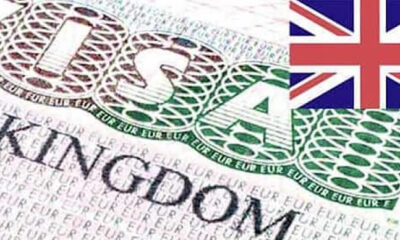

JAPA: UK Net Migration Falls By 20% Amid Visa Restrictions
-


Port Harcourt Refinery: Marketers Threaten Boycott As NNPCL Juggles Petrol Price
-
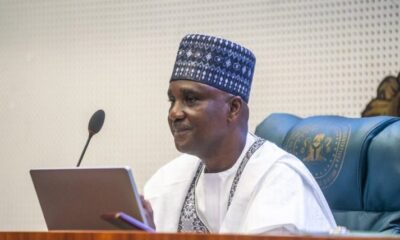

Reps To Probe N8.4tn Allegedly Withheld By NNPCL
-


30-Year Experience Prepared Me For COAS Job — Olufemi Oluyede
-


President Tinubu To Name New Ambassadors After France, South-Africa Visits
-


Finnish Court Sets May 2025 Deadline For Ekpa’s Trial Amid Alleged Terrorism Case
BIG STORY
JAPA: UK Net Migration Falls By 20% Amid Visa Restrictions
Published
9 hours agoon
November 28, 2024
Net migration to the United Kingdom has dropped significantly, with figures for the year ending June 2024 standing at 728,000, a 20 per cent decline from 906,000 the previous year, according to the Office for National Statistics, on Thursday.
The reduction is largely attributed to changes in visa policies implemented by the UK government earlier in the year.
“Our latest estimates indicate a fall in long-term net migration (the difference between people coming to live in the UK and those leaving to live elsewhere).”
“Our provisional estimates show a 20% reduction between our updated estimate for year ending June 2023 (906,000) and our latest estimate for YE June 2024 (728,000).”
“This fall is driven by a decline in long-term immigration mainly because of declining numbers of dependants arriving on study visas,” the report said.
Restrictions introduced in January 2024 prevented many international students from bringing dependants, resulting in a decrease of 94,000 in study visa applications compared to the previous year.
Similar rules introduced in March also prohibited care workers from bringing family members.
While applications for skilled worker visas increased slightly early in the year, there has been a decline since April 2024, when the government revised the list of eligible jobs for the visa category.
The ONS reported that of the 1.2 million people who migrated to the UK during this period, 86 per cent were non-EU nationals, 10 per cent EU nationals, and 5 per cent British nationals.
Indian nationals formed the largest group of non-EU migrants for both work and study purposes, with 116,000 arriving for work and 127,000 for education.
Dependants accompanying work visa holders totalled 233,000, up from 166,000 the previous year, although recent data indicates this number may now be falling.
Emigration also rose, with 479,000 people leaving the UK by June 2024, compared to 414,000 the previous year. EU nationals made up 44 per cent of those leaving, while 39 per cent were non-EU nationals, and 16 per cent were British citizens.
BIG STORY
Port Harcourt Refinery: Marketers Threaten Boycott As NNPCL Juggles Petrol Price
Published
13 hours agoon
November 28, 2024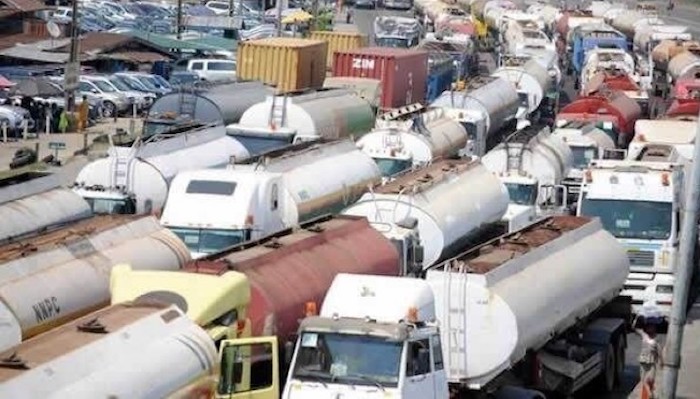
- Dealers Insist PMS Must Be Cheaper Than Dangote’s.
- NNPCL Delays Price Portal Opening, Restricts Product.
Oil marketers have outlined the conditions under which they would consider patronizing the newly rehabilitated Port Harcourt Refinery Company (PHRC) in Rivers State. They stated that the refinery, managed by the Nigerian National Petroleum Company Limited (NNPCL), must offer its refined petroleum products at prices lower than those set by the Dangote Petroleum Refinery.
In response to claims made on Wednesday that its petrol was being sold at approximately N1,045 per litre, the NNPCL clarified that the refinery had not yet released its prices. According to the company, products from the refinery are currently being supplied only to NNPCL-owned stations.
Olufemi Soneye, the spokesperson for NNPCL, explained that the company is still reviewing its pricing structure and has not yet begun bulk sales, as its purchasing portal remains closed.
In related news, it was reported on Wednesday that oil marketers had imported a total of 105.67 million litres of petrol into the country within a span of five days.
Marketers confirmed that NNPC was selling petrol at N1,045/litre, stressing that they may be compelled to opt for petrol importation as a means of meeting local demands.
According to The Punch, a total sum of 78,800 metric tonnes representing 105.67 million litres of petrol was imported into the country in the last five days spanning November 23 and November 28.
On Tuesday, the 60,000-capacity Port-Harcourt refinery resumed operations after years of inactivity, drawing initial praise from Nigerians and industry stakeholders.
The NNPC said the newly rehabilitated complex of the old Port Harcourt refinery, which had been revamped and upgraded with modern equipment, is operating at a refining capacity of 70 per cent of its installed capacity.
NNPC added that diesel and Pour Fuel Oil would be the highest output from the refinery, with a daily capacity of 1.5 million litres and 2.1 million litres, respectively.
This is followed by a daily output of Straight-Run Gasoline (Naphtha) blended into 1.4 million litres of Premium Motor Spirit (petrol), 900,000 litres of kerosene, and low-pour fuel oil of 2.1 million litres.
It was stated that about 200 trucks of petrol would be released into the Nigerian market daily.
However, claims that the national oil firm’s PMS price was higher than that of Dangote triggered diverse reactions from marketers.
The National Publicity Secretary of the Independent Petroleum Marketers Association of Nigeria, Chinedu Ukadike, told one of our correspondents that though NNPC had yet to release any price for the products from the refurbished Port Harcourt refinery, a high price would discourage marketers.
Dangote currently sells his petrol at N970/litre, while imported petrol is around that price.
Ukadike, however, noted that there was the possibility that the NNPC would review its prices downward when the Port Harcourt refinery comes fully on stream.
He confirmed that the state-owned oil company sells a litre of PMS at N1,040 or N1,045 while the Dangote refinery just reviewed its price from N990 to N970 for marketers buying a minimum of two million litres.
Ukadike did not mince words when he said independent marketers would only buy from the NNPC if its price is cheaper than that of Dangote or vice versa.
“With the Port Harcourt refinery now working, we are anticipating that any moment from now, NNPC will give us its price. Once NNPC releases its price, we will start loading from NNPC. That is subject to if it is cheaper than that of Dangote.
“The last NNPC price was N1,040 and N1,045 per litre. But I know there will be a review of prices because there has been a crash in prices globally. So, we are expecting a review. Once that review is done, I will be able to give you the actual price. I know they are reviewing it. They are on top of the matter,” the IPMAN spokesman said.
The latest development also indicates that oil marketers may commence the importation of fuel if the prices set by both domestic refineries surpass their profit margins, thereby making it more financially viable for them to rely on imported fuel rather than locally produced stock.
The National Public Relations Officer of the Petroleum Products Retail Outlets Owners Association of Nigeria, Dr Joseph Obele, had earlier said NNPC petrol was N75 higher than the N970/litre offered by Dangote refinery.
However, PETROAN’s President, Billy Gillis-Harry, in a statement denied the claim, stressing that no price has been released by the national oil firm.
He explained that members of the association bought PMS based on the old pricing structure and are still waiting for the updated prices.
The statement read, “The National Headquarters of Petroleum Products Retail Outlet Owners Association of Nigeria, PETROAN Abuja would Like to Inform the media and the general public that no new price for PMS has been released by the NNPC port Harcourt refinery.
“Members of PETROAN only bought PMS with the old pricing template awaiting
new prices. We are excited that the production and loading of refined petroleum products have commenced at the Port Harcourt Refinery and we are expectant that soon the price of PMS will be stated by NNPC to the benefit of Nigerians.”
- NNPC Reacts
But in a message sent to journalists on Wednesday night, the NNPC spokesperson said the national oil firm had not started selling its products from the Port Harcourt refinery to other oil marketers.
He was reacting to an earlier claim by the Petroleum Products Retail Outlets Owners Association of Nigeria that the newly rehabilitated Port-Harcourt refinery was selling at N1,045/litre to oil marketers.
He noted that only NNPCL retail stations are receiving products from the refinery.
He said, “We have not yet commenced bulk sales, and we have not yet opened the purchase portal as we are still finalizing the necessary processes.”
He further stated its current stock was procured from the Dangote Refinery and includes fees and levies.
“At present, the products we are selling are what we bought from the Dangote Refinery, which includes NMDPRA fees. The product from PH is currently for our retail stores. Our prices are regularly reviewed and adjusted as required.”
- PMS Imports
Meanwhile, fresh findings (by The Punch) have revealed that a total sum of 78,800 metric tonnes representing 105.67m litres of petrol have been imported into the country in the last five days spanning November 23 and November 28.
The product was conveyed in four vessels with the latest to be received today (Thursday, November 28, 2024), according to documents obtained from the Nigerian Ports Authority on Wednesday.
An analysis of the document showed that 38,500 metric tonnes of petrol imported on Monday, November 25 berthed at the Lagos Apapa port (Bulk Oil Plant).
Similarly, a Bedford ship conveying 10,000mt of PMS will berth at the Ebughu jetty, Calabar port in Cross Rivers on Thursday, November 28.
Two vessels that arrived on Saturday, November 23 is still waiting to berth. The ships are carrying 30,300mt of fuel.
It also revealed that 11,000 metric tonnes of base oil was imported while the 20bn Dangote refinery received crude oil worth 133,986 metric tonnes on Monday, November 27, 2024.
Last week, oil marketers and the NNPCL had stated plans to stop the import of fuel to focus on off-taking from domestic sources.
This was a fallout from a high-level meeting organised by the NNPC Group CEO Mele Kyari, and the Nigerian Midstream and Downstream Petroleum Regulatory Authority. In attendance were representatives of the Major Oil Marketers Association of Nigeria, Depot and Petroleum Products Marketers Association of Nigeria, and key stakeholders from companies such as 11 Plc, Matrix, and AA Rano, among other stakeholders at the NNPCL towers in Abuja.
The meeting was in growing confidence in Dangote Refinery’s ability to meet the nation’s domestic fuel demand and the need to cut fuel imports.
Credit: The Punch
BIG STORY
Reps To Probe N8.4tn Allegedly Withheld By NNPCL
Published
14 hours agoon
November 28, 2024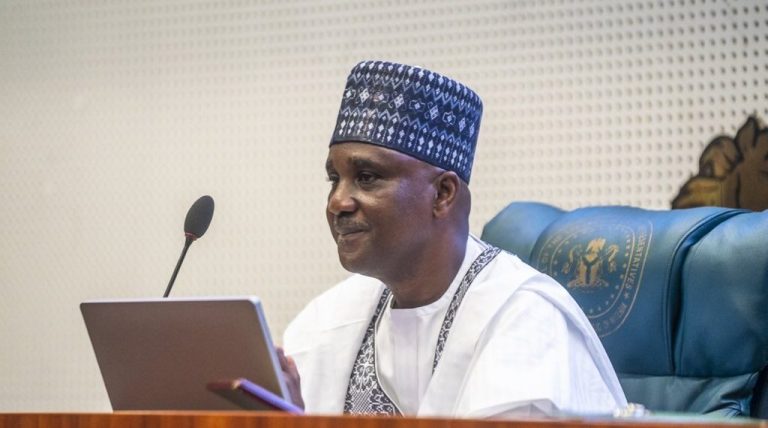
On Wednesday, the House of Representatives instructed its Committees on Finance, Petroleum (Upstream and Downstream) to investigate reports from the Revenue Mobilisation Allocation and Fiscal Responsibility Commission “alleging that the NNPC (now Nigerian National Petroleum Company Limited) withheld N8.48tn as claimed subsidies for petrol.”
The House also emphasized that “the investigation will address the NEITI report stating that NNPC (now NNPCL) failed to remit $2bn (N3.6tn) in taxes to the Federal Government.”
The committees were tasked with verifying the total cumulative amount of unremitted revenue (under-recovery) from the sale of petrol by the NNPC between 2020 and 2023.
Meanwhile, the House approved the 2025-2027 Medium-Term Expenditure Framework (MTEF) and Fiscal Strategy Paper (FSP) ahead of President Bola Tinubu’s presentation of the 2025 Appropriation Bill to the National Assembly next week.
The MTEF is a multi-year plan for public expenditure that sets targets for budget spending and fiscal policy, ensuring these goals are met throughout the budget process.
The FSP outlines a country’s fiscal policy and medium-term macro-fiscal framework. It is a critical part of the annual budget process and the Medium-Term Budget Framework.
President Tinubu had transmitted the MTEF/FSP to the National Assembly on Tuesday, November 19, 2024, following the approval of the Federal Executive Council.
The Tinubu administration set the oil benchmark for 2025 at $75 per barrel, with oil production projected at 2.06 million barrels per day. The government also pegged exchange rate parameters at N1,400 per dollar, with a projected Gross Domestic Product growth rate of 6.4% per annum.
During the Committee of Supply meeting to consider the report of the Committees on Finance and National Planning and Economic Development, presiding officer and Deputy Speaker Benjamin Kalu expected the usual “carried” chorus from members when he began the clause-by-clause consideration of the 15 recommendations. However, the Minority Leader of the House, Kingsley Chinda, changed the tone of the discussion.
- Oil Benchmark Controversy
Chinda spoke out on the $75 oil benchmark, suggesting that the 2025 figure should reflect the 2024 benchmark, pointing to the higher prices reached in early 2024.
He said, “Because of the importance and sensitivity of MTEF, I will advise that we consider it thoroughly before we pass. This is one of the most important bills this parliament will ever pass. They recommend a $75, $76.2, and $75.3 benchmark per barrel of crude for 2025, 2026, and 2027 respectively.
“We are aware that for 2024, what we recommended was $77.96, which is the current budget. Today, it is about $85 per barrel. That is, in the first quarter of 2024, we achieved $85 and it increased further. If we are recommending $75 for next year, which is one month away, against the $77 we recommended for this year, I will advise that we retain the minimum we adopted for this year.
“Rather than increasing, we are reducing. I am not unaware of the issue of moving to gas-propelled vehicles, leaving fossil fuel. I am aware that the world is moving that way, and reliance on crude may be a bit reduced, but going for $75 might be a bit too low,” he said.
In response, the Chairman of the House Committee on Finance, Abiodun Faleke, defended the $75 per barrel benchmark as “responsible.”
He stated, “Crude oil prices in the international market are not controlled by any country. In 2024, we were fortunate that crises in some oil-producing countries led to higher prices. In 2025, there is likely to be more stability. If you set the benchmark too high, it bloats expectations. Today, the price has crashed to $74. I think our benchmark is reasonable.”
Ibrahim Isiaka, the member representing Ifo/Ewekoro Federal Constituency, Ogun State, supported this view, saying, “If we pass this MTEF today and there is a need for amendment, this House can sit and do the necessary review. There was a time when crude sold for $120 per barrel and a time it sold for $20. Let us see this as a working document subject to review.”
At the conclusion of the debate, the $75 benchmark was adopted.
- Oil Production
Another contentious point was the significant increase in domestic crude oil production, projected to rise from 1.78mbdp in 2024 to 2.06mbdp, 2.10mbdp, and 2.35mbdp in 2025, 2026, and 2027, respectively.
Chinda questioned the rationale behind the 2025 projection of 2.06mbpd, saying, “We are making projections for domestic crude oil production from 1.78mbpd in 2024 to 2.06, 2.10, and 2.35mbdp for 2025, 2026, and 2027. If you look particularly at the social media, they will tell you that we are producing about 2mbpd, but the truth is, we are not. Although there is improvement, as of yesterday, the volume was 1.05mbpd.
“These are the things that will help us in proper planning so that the government does not have to always come to the National Assembly for borrowing, which also exposes us further to criticisms by Nigerians.
“We must be critical about how we set our benchmark. Our target has always been to produce 2mbpd. OPEC’s quota for us is 1.8mbpd. Putting this ambitious target of 2.06mbpd and 2.35mbpd, we might not really achieve it. If we don’t achieve it, we know we will be tightening our belts. We are already projecting that we will sell 2.06 million barrels, and if we sell less, we will get less funds. Let us reduce our target rate to 2 million barrels per day, which has always been our target,” Chinda argued.
Faleke defended the recommendation, stating, “As of today, production is close to 2mbpd. It is getting better. Operators of NUPRC gave us the details. If you put a lower projection, you are indirectly telling the operators not to work hard. Let us push them to work harder and get more funding for our country. There was a time during the era of Goodluck Jonathan when we were around 2.5mbpd. Mind you, this 2.06 projection includes all the concentrates. It is not just crude oil alone.”
Regarding the proposed exchange rate of N1,400 to the dollar for the next three years, a lawmaker from Nasarawa State, Gbefwi Gaza, said, “In the past few years, we have seen the volatility in our currency. In this country, virtually everything we do is pegged to the dollar. If we don’t have a very good proposed rate, what that means is that we have to increase our borrowing for any deficit.
“What do we have on the ground to make the naira stronger and make the dollar weaker? Yes, we have the Dangote Refinery, but we are in a phase of energy transition. We are going to the era of using more batteries and fewer fossil fuels; yet, fossil remains our main source of income.”
The House also adopted inflation rate projections of 15.75%, 14.21%, and 10.04% for 2025, 2026, and 2027, respectively.
Additionally, the House agreed that “The 2025 Federal Government of Nigeria budget proposed spending of N47.9tn, of which N34.82tn was retained. New borrowings stood at N9.22tn, made up of both domestic and foreign borrowings.”
Capital expenditure is projected at N16.48tn, with statutory transfers at N4.26tn and sinking funds at N430.27bn.
Most Popular
-

 BIG STORY4 days ago
BIG STORY4 days agoDiscos May Move Three Million Subscribers To Estimated Billing Over Failure To Upgrade Prepaid Meters
-

 BIG STORY4 days ago
BIG STORY4 days agoDonors Supporting Simon Ekpa Guilty Of Terrorism — Lawyers
-

 BIG STORY4 days ago
BIG STORY4 days agoBritish Court Orders David Hundeyin To Pay N200million As Damages To BBC Journalist For Libel
-

 BIG STORY3 days ago
BIG STORY3 days agoJUST IN: Ebonyi Governor Suspends Health, Housing Commissioners Over “Gross Misconduct, Negligence Of Duty”
-

 BIG STORY2 days ago
BIG STORY2 days agoJUST IN: Customs Hands Over 21 Stolen Vehicles To Canadian Government
-

 BIG STORY3 days ago
BIG STORY3 days agoAn Aspirant Gave Each Delegate $30,000 During PDP Primary In 2022 — Dele Momodu
-

 BIG STORY3 days ago
BIG STORY3 days agoBREAKING: Finally, Port Harcourt Refinery Begins Production
-

 BIG STORY2 days ago
BIG STORY2 days agoTwo US-Based Nigerians Bag 30-Year Jail For $3.5m Romance Scam









